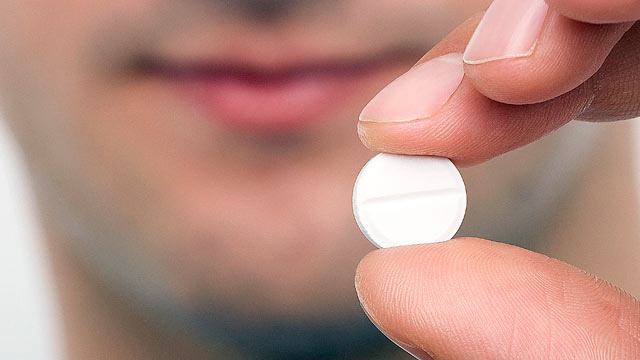Nov 3rd 2025
Aspirin Alternatives for Thinning the Blood

As we age, our blood tends to become thicker, stickier and more viscous. When your blood is thick and flows more slowly, oxygen and other nutrients aren’t delivered as efficiently. But worse, viscous blood forms deadly clots more readily and has an abrasive quality that damages blood vessel linings, setting the stage for inflammation, plaque formation and eventual atherosclerosis. It also contributes to high blood pressure and is implicated in age-related cognitive decline and dementias like Alzheimer’s disease.
So keeping the blood thin (as in “blood thinners”) is a good idea, and to this end, doctors often recommend aspirin for its blood-thinning abilities.
But aspirin has a big downside: by slowing tissue repair it increases the risk of internal bleeding—usually gastrointestinal bleeding, but also the kind of retinal bleeding or leaking that causes macular degeneration. Even the supposedly safer low doses have been found over time to do the same kind of serious damage that high doses do in less time. It doesn't matter whether you buffer it or enteric-coat it, aspirin will cause GI bleeding. In fact, as little as one aspirin can cause bleeding.
Aspirin also causes inflammation leading to gastritis and peptic and duodenal ulcers, and it’s quite acidic. This irritates the intestinal lining and also leads to increased systemic acidity.
Finally, aspirin thins the blood unnaturally by destroying red blood cells, setting the stage for many blood disorders, beginning with anemia.
Here are eight natural blood-thinners:
Donate Blood. Menstruating women rarely have heart attacks or strokes. This is probably because the regular loss of blood forces the body to create new, young, more resilient red blood cells that make for thinner blood.
Drink More Water. If you're dehydrated, your blood becomes thicker. Aim for 2 quarts a day.
Eat More Apples. Apples contain substantial amounts of a flavonoid called rutin, which has been shown to reduce blood stickiness and to prevent blood clots that block blood vessels. Onions, tea and citrus fruits are also good sources of rutin.
Take Fish and Flax Oils. They make blood platelets slippery, so they don't stick together as readily, and they also reduce inflammation. Numerous studies attest to their blood-thinning effects and to their ability to dramatically reduce heart disease.
Supplement with vitamin E. A potential problem with taking fish or flax oils is that the delicate omega-3 and omega-6 fatty acids they contain are easily oxidized, canceling out much of their benefit. However, vitamin E, the most important of the fat-soluble antioxidants, protects these fatty acids from oxidation. AND vitamin E is itself a blood thinner. Make sure it’s natural vitamin E versus synthetic!
Eat More Garlic. Garlic reduces clotting time, makes platelets less sticky and breaks down clots. If you don’t like garlic (or garlic-breath), try Kyolic Aged Garlic Extract.
Imbibe Moderately. Moderate alcohol consumption, especially red wine, has an anticoagulant (anti-clotting) effect.
Exercise. Is there anything exercise isn’t good for? Well, it’s good for thinning the blood too! In addition, it conditions your blood vessels, improving circulation. If your doctor says these interventions aren’t doing enough to thin your blood, consider taking proteolytic enzymes like nattokinase and serrapeptase.
 Fuel your life with the purest vitamins
Fuel your life with the purest vitamins
